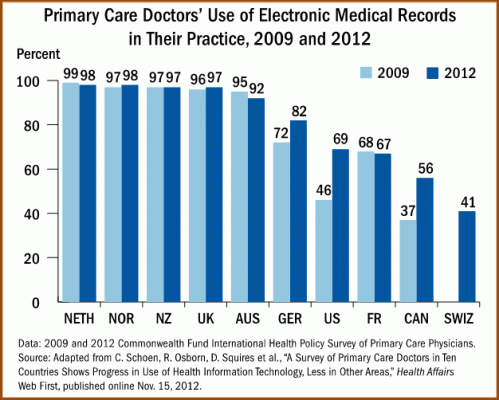This article reinforces that patients need a loved one to monitor every aspect of the patient's care.
Digital Health Records
Hmm looks like digital health record keeping opens new avenues for lawyers to sue hospitals & software designers of such systems.
Digital Health Records
>When Scot Silverstein’s 84-year-old mother, Betty, starting mixing up her words, he worried she was having a stroke. So he rushed her to Abington Memorial Hospital in Pennsylvania.
After she was admitted, Silverstein, who is a doctor, looked at his mother’s electronic health records, which are designed to make medical care safer by providing more information on patients than paper files do. He saw that Sotalol, which controls rapid heartbeats, was correctly listed as one of her medications.
Days later, when her heart condition flared up, he re-examined her records and was stunned to see that the drug was no longer listed, he said. His mom later suffered clotting, hemorrhaged and required emergency brain surgery. She died in 2011. Silverstein blames her death on problems with the hospital’s electronic medical records.Electronic health records are supposed to improve medical care by providing physicians quick and easy access to a patient’s history, prescriptions, lab results and other vital data. While the new computerized systems have decreased some kinds of errors, such as those caused by doctors’ illegible prescriptions, the shift away from paper has also created new problems, with sometimes dire consequences.
Dangerous doses of drugs have been given because of confusing drop-down menus; patients have undergone unnecessary surgeries because their electronic records displayed incorrect information; and computer-network delays in sending medical images have resulted in serious injury or death, according to a study published in 2011 based on reports submitted to the U.S. Food and Drug Administration.
Hmm looks like digital health record keeping opens new avenues for lawyers to sue hospitals & software designers of such systems.


